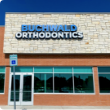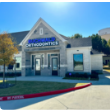
Having a loose tooth can be pretty exciting when you’re a kid. It means you’re growing up, becoming an adult, and maybe even getting a surprise from the tooth fairy soon. But once you’ve gotten all your permanent teeth, a wiggly tooth is a totally different experience. If you’re undergoing orthodontic treatment as a teen or adult, moving teeth can be very scary, but here’s why it’s usually nothing to worry about!
Why Does My Tooth Feel Loose?
If you think about it, a loose tooth during orthodontic treatment makes a certain amount of sense. After all, your teeth are shifting into a new, more ideal position. Although they are still firmly attached to the periodontal ligament, they must stretch and compress a bit to create a wider space to move to. As a result, they may feel loose from time to time. The good news is that this means that your treatment is working.
Does This Mean My Teeth Could Fall Out?
The great news is that even though they may feel a little loose during treatment, the bone will be rebuilt, and your teeth will stay securely in place. The only reason they could fall out is if you neglect your oral hygiene and develop periodontal disease. This means it is extremely important that you take excellent care of your smile during treatment by brushing twice a day and flossing at least once a day. You may also consider investing in a water flosser to help keep your teeth, gums, and braces clean.
What Happens if My Teeth Feel Loose After Treatment?
It is very common for teeth to still feel a little loose after your orthodontic treatment is over, but that’s where retainers come into play. These devices not only help maintain your new spacing, but they also help tighten your teeth in the same way a cast is used to stabilize a broken bone. Once the osteoblasts fill in the bone, they will feel solid and remain firmly in place. Just remember to wear the retainer as prescribed so they don’t shift back out of alignment over time!
Remember, loose teeth during orthodontic treatment are very normal, and there is no reason to be alarmed. This is a very common, temporary element of treatment that should go away once your teeth have had an opportunity to solidify again in their new positions.
About Dr. Buchwald
Dr. Bradley Buchwald is a proud graduate of the Nova Southeastern University College of Dental Medicine. Following dental school, Dr. Buchwald completed a three-year orthodontic residency at Texas A&M University Baylor College of Dentistry in Dallas, where he earned a Certificate in Orthodontics and a Master of Science degree in Oral Biology. To schedule an orthodontic appointment with Buchwald Orthodontics, please visit our website or call us today at 972-377-5940.




